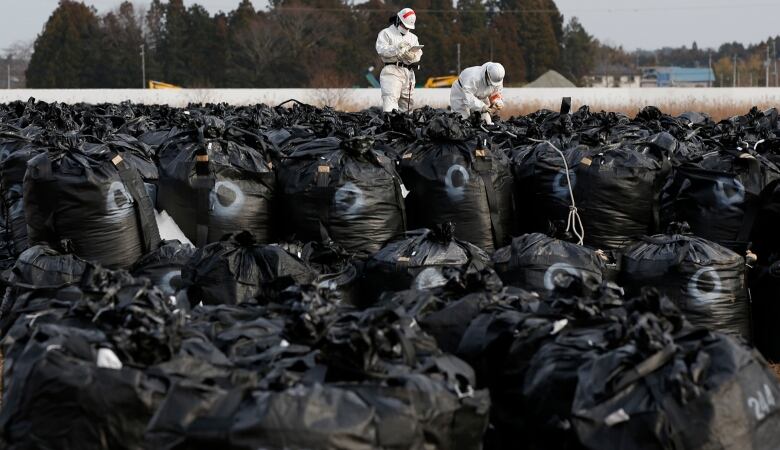Fukushima earthquake 5 years later: Japanese relief worker thanks Canada
“I even felt the sky become dark," said Naoki Kokawa, who works with the Japanese Red Cross

Naoki Kokawa remembers the day clearly.
The deputy director general of the Japanese Red Cross's international department was stacking firewood in preparation for the next year's winter when he felt the shallow tremors of what would become the world's fourth largest recorded earthquake.
At first they were small, nothing to worry about in a country that experiences many earthquakes a year, thought Kokawa.
But they increased in strength until the five-feet tall pile of wood fell on him.
"I couldn't hold it and it just came down onto me. Immediately, I knew this was going to be a major disaster," he said.
"I even felt the sky become dark."
It's been five years since one of the worst disasters in Japanese history hit the country in three successive waves — a 9.0 magnitude earthquake, then a tsunami, then a nuclear meltdown.
About 16,000 people died, 6,000 were injured, and 2,500 are still missing.
More than 470 people were ordered to leave their homes and many have not yet returned due to radiation fears from the Fukushima nuclear disaster that released radioactive material into the air.
Kokawa is in Vancouver this weekend to attend several events commemorating the fifth anniversary of the Great East Japan Earthquake.
28 million tonnes of debris

Providing emergency relief to hundreds of thousands of people during the crisis that followed was a familiar challenge for the Red Cross, whose workers have served in many other natural disasters, said Kokawa.
But cleaning up 28 million tonnes of debris made from crumpled buildings was a monumental task.
Kokawa travelled to Ishinomaki, a town in northern Japan, days after the earthquake.
"We saw a totally flattened town," he said.
"It's not simply putting [the debris] in a truck and dumping them somewhere," said Kokawa.
Grateful for support

Japan is a global leader in earthquake preparedness but even it's leaders needed help from others when the Great East Japan Earthquake hit.
"Even in a developed country like us, we thought we could manage, but actually no. We received so much enormous support internationally. Particularly from Canada, we received $48 million," said Kokawa.
"We are so [thankful] for that."
With files from CBC Radio's The Early Edition
To listen to the full interview, click the link labelled: Fukushima anniversary marked by Japanese Red Cross.